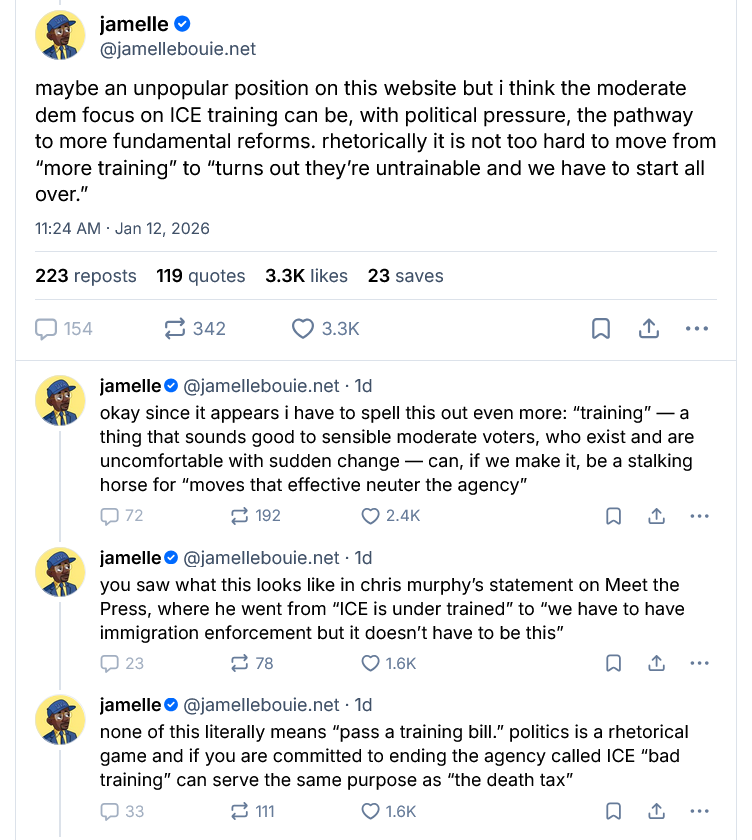This is a thread about how journalists decide what is “news” and what isn’t. Anyone shaping the news and anyone consuming the news should understand who decides what counts as news, how they decide it, and what determines what they say about it. Here, I ask a few questions:
This thread is inspired by the gap in what mainstream media treats as urgent and what are the greatest threats to human safety, well-being, and survival.
For example, air pollution kills *10 million people* each year and causes untold additional illness and suffering. It rarely features in daily news stories. Why?
https://twitter.com/dwallacewells/status/1463517703226937348
Instead, daily news is dominated by “crime” stories. But even these are “crime” stories of a certain kind: they aren't stories about the many air pollution crimes. They are the kind of "crimes" publicized by police press releases, usually involving poor people.
Much of deadly U.S. air and water pollution is also criminal, but “law enforcement” chooses to ignore it, and thus so do most journalists.
https://twitter.com/equalityAlec/status/1422949480861769740
Why is this important? What the media treats as urgent helps to determine what the public thinks is urgent. It shapes what (and who) we are afraid of.
A thought experiment: Imagine if every day for the last 25 years every newspaper and tv station had urgent “breaking news” stories and graphics about the *thousands of deaths the night before* from air/water pollution, climate change, or poverty?
Take the frenzy over “retail shoplifting” from big corporate stores, which has taken over local/national news. Same reporters don't cover the $137 million in corporate wage theft *every day,* including by the same companies whose press releases about shoplifting they now quote.
The media’s frenzy has led to emergency actions by many politicians, who are feeling intense political pressure to pass laws, assign thousands more police, increase police/prison budgets, and project an urgency they have *never* shown for wage theft: newsweek.com/california-gov…
Wage theft is more devastating than all other property crime combined. And unlike theft from big companies, wage theft is *by corporations* from workers, many of whom struggle to meet basic necessities of life. It makes people homeless and kids go without food and winter coats.
Did you know that mostly bank fraudulent overdraft fees amount to basically the same amount of property theft as all burglary, larceny, car theft, and shoplifting combined? Probably not, because the media doesn’t report on instances of overdraft fraud by banks every day.
If it’s hard to grasp the scope of the news’s silence on $50 billion wage theft epidemic, how can we grasp the scope of the news’s daily silence on the $1 trillion tax evasion epidemic by wealthy people? bloomberg.com/news/articles/…
Viewed in terms of absolute property value and objective harm, this makes much of the media’s obsession with retail shoplifting from corporate chain stores look absurd.
The same is true across public health, banking, manufacturing, employment, consumer protection, tax, and environment: things that cause greatest suffering and threats to public safety—many of which are crimes—receive a fraction of the attention as what police report as “crimes.”
Most people don’t know, because "news" didn’t tell them, that fraud crimes by bankers killed tens of thousands of people. Hundreds of thousands of people become homeless each year because of illegal actions by landlords. Almost never reported each day. yalelawjournal.org/forum/the-puni…
So, who is deciding to cover shoplifting with “breaking news” urgency but not air pollution, wage theft, and fraud that leaves people and their children homeless and in poverty?
The stakes are enormous. The world is careening toward extinction level events and millions are already dying from preventable causes that most people in the U.S. do not treat with urgency.
It’s hard to think of something more important than understanding the information-spreading apparatus that creates this gap between perception and reality.
Most people setting these agendas in the media are caring people committed to helping people understand the world. The NYT slogan is “all the news that’s fit to print.” The WaPo: “Democracy dies in the darkness.” How did such a gap between reality and "the news" develop?
Here are a few questions worth asking, and I hope you’ll add more:
Do the social and economic circles of journalists determine what they think is newsworthy?
Do the social and economic circles of journalists determine what they think is newsworthy?
Are there habits and customs relating to where journalists look for information, who their sources are, and who has the money to publicize things to journalists that determine what is considered news?
Are there professional economic incentives, racial and class biases, and jingoistic ideologies that shape *what harms* to *which people* count as important enough to be breaking news, or news at all?
What role does corporate ownership and consolidation of media companies play in determining what is covered and how urgently it is covered?
• • •
Missing some Tweet in this thread? You can try to
force a refresh







